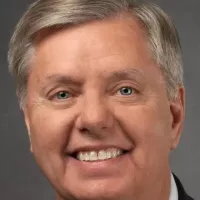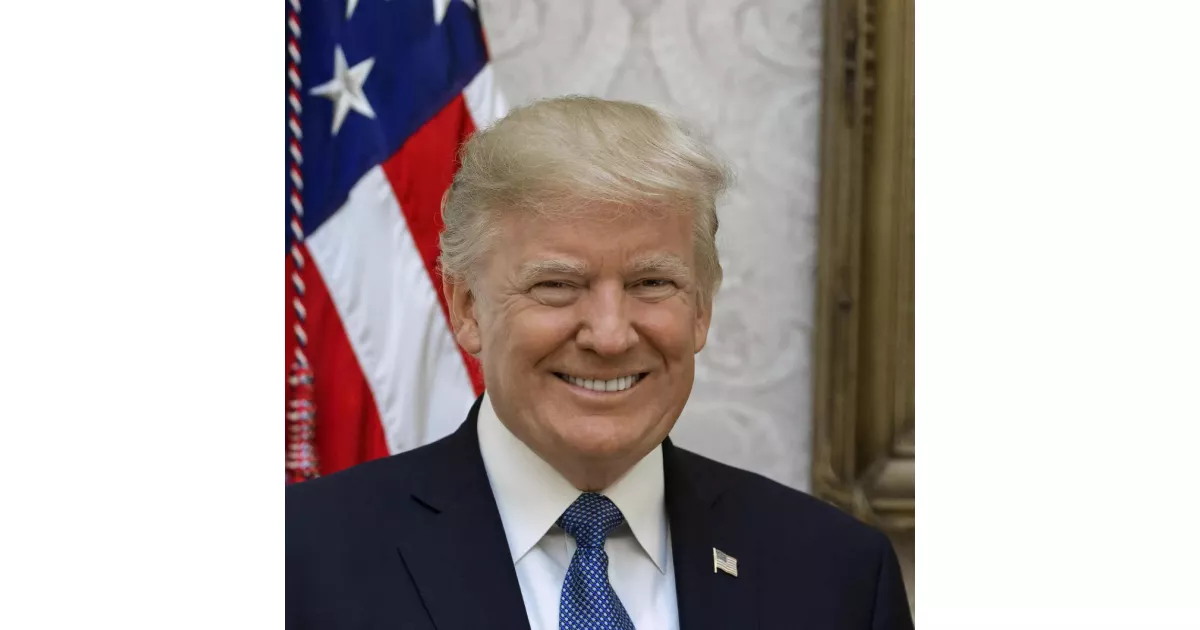A closer look at the defining struggles that shaped Donald Trump's life and career.
Donald John Trump is an American politician, media personality, and businessman. As a member of the Republican Party, he served as the 45th U.S. President from 2017 to 2021. He is also the 47th president of the United States.
1970: Investment in Broadway Comedy
In 1970, Donald Trump invested $70,000 of his father's wealth to receive billing as coproducer of a Broadway comedy, ultimately losing the money.
1973: Countersued the U.S. government
In 1973, Donald Trump, with the help of Roy Cohn, countersued the U.S. government for $100 million over charges of discrimination against Black applicants and tenants, though the counterclaims were dismissed and the case was settled.
1985: USFL Folded After 1985 Season
The United States Football League folded after the 1985 season, due to Donald Trump's attempt to move to a fall schedule and force a merger with the NFL by bringing an antitrust suit.
1990: Self-Reported Net Worth
In 1990, Donald Trump self-reported his net worth as minus $900 million.
1991: Default on Trump Shuttle Loans
In 1991, Donald Trump defaulted on his loans for the Trump Shuttle, and ownership passed to the banks.
1991: Trump Taj Mahal filed for Chapter 11 bankruptcy protection
In 1991, Donald Trump filed for Chapter 11 bankruptcy protection for the Trump Taj Mahal.
1991: First Corporate Bankruptcy Filing
In 1991, Donald Trump's over-leveraged hotel and casino businesses in Atlantic City and New York filed for Chapter 11 bankruptcy protection.
1992: Formation of All County Building Supply & Maintenance Corp
In 1992, Donald Trump and his siblings formed All County Building Supply & Maintenance Corp, alleged to have been a shell company for marking up the costs of services and supplies for Trump's rental units.
1992: Trump's Castle and Harrah's at Trump Plaza filed for Chapter 11 bankruptcy protection
In 1992, both Trump's Castle and Harrah's at Trump Plaza filed for Chapter 11 bankruptcy protection.
1992: The Plaza Hotel filed for bankruptcy protection
In 1992, the Plaza Hotel, owned by Donald Trump, filed for bankruptcy protection, and the banks took control of the property.
January 1994: Formation of Apartment Management Associates
In January 1994, Donald Trump and his siblings formed Apartment Management Associates to take over the management fees formerly collected by Trump Management, which served to inflate rents and transfer assets from Fred Trump.
1994: Sold interest in Riverside South
In 1994, struggling with debt, Donald Trump sold most of his interest in the Riverside South project to Asian investors.
1995: Defaulted on bank loans and lenders seized properties
In 1995, Donald Trump defaulted on over $3 billion of bank loans, and the lenders seized the Plaza Hotel along with most of his other properties.
2004: Trump Hotels & Casino Resorts went bankrupt
In 2004, Trump Hotels & Casino Resorts went bankrupt, leaving Donald Trump with 10 percent ownership.
2006: Stormy Daniel's Alleged Affair with Trump
The case stemmed from evidence that Donald Trump booked Michael Cohen's hush-money payments to adult film actress Stormy Daniels as business expenses to cover up his alleged 2006–2007 affair with Daniels during the 2016 election.
2007: Stormy Daniel's Alleged Affair with Trump
The case stemmed from evidence that Donald Trump booked Michael Cohen's hush-money payments to adult film actress Stormy Daniels as business expenses to cover up his alleged 2006–2007 affair with Daniels during the 2016 election.
2009: Filing for Chapter 11 bankruptcy protection
In 2009, Donald Trump filed for Chapter 11 bankruptcy protection for six of his businesses, including the Trump Hotels & Casino Resorts company.
2009: Sixth Corporate Bankruptcy Filing
In 2009, Donald Trump's over-leveraged hotel and casino businesses in Atlantic City and New York filed for Chapter 11 bankruptcy protection for the sixth time.
2009: Trump Hotels & Casino Resorts went bankrupt and Trump resigned as chairman
In 2009, Trump Hotels & Casino Resorts went bankrupt and Donald Trump resigned as chairman.
2013: Civil Suit Against Trump University
In 2013, the State of New York filed a $40 million civil suit against Trump University, alleging that the company made false statements and defrauded consumers.
2016: Settlement of Trump University Cases
Shortly after he won the 2016 presidential election, Donald Trump agreed to pay a total of $25 million to settle the Trump University cases.
2016: Hush Money Payments During 2016 Election
The case stemmed from evidence that Donald Trump booked Michael Cohen's hush-money payments to adult film actress Stormy Daniels as business expenses to cover up his alleged affair with Daniels during the 2016 election.
October 2017: Sub-Cabinet Positions Unfilled
In October 2017, there were hundreds of sub-cabinet positions without a nominee in the Trump administration.
June 2018: Civil Suit Against Trump Foundation
In June 2018, the New York attorney general's office filed a civil suit against the Donald J. Trump Foundation, Donald Trump, and his adult children.
June 2018: Trump Administration Challenges Affordable Care Act
In June 2018, the Trump administration joined 18 Republican-led states in arguing before the Supreme Court that the elimination of the financial penalties associated with the Affordable Care Act's individual mandate had rendered the Act unconstitutional, which could have eliminated health insurance coverage for up to 23 million Americans.
July 2018: Staff Departures Reach Record High
By July 2018, 61 percent of Donald Trump's senior aides had left their positions, and 141 staffers had left in the previous year, setting a record for recent presidents.
December 2018: Government Shutdown Begins
In December 2018, Donald Trump's refusal to sign any spending bill unless it allocated funding for the border wall resulted in the longest-ever federal government shutdown, lasting for 35 days.
2018: Legal Actions Involving Trump Businesses
According to a review by USA Today in 2018, Donald Trump and his businesses had been involved in more than 4,000 state and federal legal actions.
2018: Lawsuits
As of 2018, Donald Trump had been involved in more than 4,000 lawsuits, liens, and other filings.
2018: Government Revenues Lower Than Projected
In 2018, government revenues were 7.6 percent lower than projected, despite the Trump administration's claim that the Tax Cuts and Jobs Act would not decrease government revenue.
January 8, 2019: Key Positions Unfilled
By January 8, 2019, of 706 key positions in the Trump administration, 433 had been filled, and there was no nominee for 264.
January 2019: Government Shutdown Ends
In January 2019, the federal government shutdown, which began in December 2018 due to Donald Trump's demand for border wall funding, ended after he agreed to fund the government without any funds for the wall.
April 2019: House Oversight Committee Issued Subpoenas for Trump's Financial Details
In April 2019, the House Oversight Committee issued subpoenas seeking financial details from Donald Trump's banks, Deutsche Bank and Capital One, and his accounting firm, Mazars USA. He sued to prevent the disclosures.
July 2019: Whistleblower Complaint Regarding Trump-Zelenskyy Call
In July 2019, a whistleblower complaint revealed that Donald Trump had pressured Ukrainian president Volodymyr Zelenskyy to investigate Joe and Hunter Biden.
October 2019: Talks with North Korea Break Down
In October 2019, talks between the United States and North Korea broke down, and no denuclearization agreement was reached.
December 2019: House Voted to Impeach Trump
In December 2019, the House voted to impeach Donald Trump for abuse of power and obstruction of Congress.
2019: First impeachment
In 2019, Donald Trump was impeached for abuse of power and obstruction of Congress, but was acquitted by the Senate.
2019: Federal Budget Deficit Increases
In 2019, during Donald Trump's presidency, the federal budget deficit increased by almost 50 percent, reaching nearly $1 trillion.
2019: E. Jean Carroll Accused Trump of Rape
In 2019, journalist E. Jean Carroll accused Donald Trump of raping her in the 1990s and sued him for defamation over his denial.
February 2020: Senate Acquitted Trump in First Impeachment Trial
In February 2020, the Senate acquitted Donald Trump in his first impeachment trial.
February 2020: COVID-19 Recession Begins
In February 2020, the longest economic expansion in American history, which began in 2009, came to an end with the onset of the COVID-19 recession during Donald Trump's presidency.
April 2020: Trump Halted WHO Funding and Encouraged Anti-Lockdown Protests
In April 2020, Donald Trump halted funding of the World Health Organization after weeks of attacks to draw attention away from his slow response to the pandemic. Also in April 2020, he encouraged anti-lockdown protests on Twitter, despite the targeted states not meeting his administration's guidelines for reopening.
August 2020: Rollback of Anti-Discrimination Protections Halted
In August 2020, a federal judge halted the Trump administration's attempted rollback of anti-discrimination protections for transgender patients, following a Supreme Court ruling that extended employees' civil rights protections to gender identity and sexual orientation.
November 2020: Biden Won the 2020 Election
In November 2020, Joe Biden won the election, receiving 81.3 million votes to Trump's 74.2 million. Trump baselessly alleged election fraud.
December 2020: Concerns Over Trump's Potential Actions
In December 2020, reports emerged that U.S. military leaders were on high alert, discussing what to do if Donald Trump declared martial law. There were also concerns he might attempt a coup or military action against China or Iran.
2020: Case Dismissed Against Trump due to reelection
After his reelection, the 2020 election obstruction case and the classified documents case were dismissed without prejudice due to Justice Department policy against prosecuting sitting presidents.
2020: 2020 presidential election overturning attempts
In 2020, Donald Trump made attempts to overturn the results of the presidential election.
2020: Racketeering case related to the 2020 election in Georgia is pending
In 2020, a racketeering case related to the election is pending in Georgia.
2020: Response to COVID-19 pandemic
In 2020, in response to the COVID-19 pandemic, Donald Trump downplayed its severity, contradicted health officials, and signed the CARES Act.
2020: Trump Sowed Doubts About the Election
Starting in early 2020, Trump sowed doubts about the election, claiming without evidence that it would be rigged and that widespread use of mail balloting would produce massive election fraud.
2020: Trump Efforts to Overturn Election
These events are in connection with Donald Trump's efforts to overturn the 2020 election and his involvement in the January 6 attack.
January 6, 2021: Trump's Rally and Capitol Attack
On January 6, 2021, Donald Trump held a rally at the Ellipse, urging his supporters to "fight like hell" and march to the Capitol. His supporters then formed a mob that broke into the building.
January 13, 2021: House Charged Trump with Incitement of Insurrection
On January 13, 2021, the House of Representatives charged Donald Trump with incitement of insurrection following the January 6 Capitol attack.
May 2021: Trump and Supporters Began Using 'Big Lie' Term
In May 2021, Donald Trump and many of his supporters began using the term "big lie" to refer to the 2020 election itself.
2021: January 6 Capitol attack and second impeachment
In 2021, following his attempts to overturn the 2020 presidential election, the January 6 Capitol attack occurred, and Donald Trump was impeached for incitement of insurrection, though he was later acquitted.
January 2022: National Archives Retrieved Documents from Mar-a-Lago
In January 2022, the National Archives and Records Administration retrieved 15 boxes of documents that Donald Trump had taken to Mar-a-Lago after leaving the White House, some of which were classified.
August 8, 2022: FBI Searched Mar-a-Lago
On August 8, 2022, FBI agents searched Mar-a-Lago for illegally held documents, including those in breach of the Espionage Act, collecting 11 sets of classified documents, some marked top secret.
September 2022: Settlement Reached Regarding Mazars Subpoena
In September 2022, Donald Trump and the House Oversight Committee reached a settlement regarding Mazars, and the firm began turning over documents.
December 2022: House Committee Recommended Criminal Charges Against Trump
In December 2022, the U.S. House committee on the January 6 attack recommended criminal charges against Donald Trump for obstructing an official proceeding, conspiracy to defraud the United States, and inciting or assisting an insurrection.
2022: New York Filed Civil Lawsuit Against Trump
In 2022, New York filed a civil lawsuit against Donald Trump accusing him of inflating the Trump Organization's value.
June 2023: Trump Indicted by Special Counsel Jack Smith
In June 2023, a federal grand jury constituted by Special Counsel Jack Smith indicted Donald Trump on 31 counts of "willfully retaining national defense information" under the Espionage Act, among other charges.
August 2023: Trump Indicted in Fulton County, Georgia
In August 2023, a grand jury in Fulton County, Georgia, indicted Donald Trump on 13 charges, including racketeering, for his efforts to subvert the 2020 election in the state.
2023: Liable in civil cases for sexual abuse, defamation and business fraud
In 2023, Donald Trump was found liable in civil cases for sexual abuse, defamation, and business fraud.
May 2024: Trump Convicted on 34 Felony Counts
In May 2024, Donald Trump was convicted on 34 felony counts of falsifying business records related to hush-money payments.
July 13, 2024: Assassination Attempt on Trump
On July 13, 2024, Donald Trump was shot in the ear during an assassination attempt at a campaign rally in Butler Township, Pennsylvania.
July 2024: Case Dismissed Against Trump
In July 2024, Judge Aileen Cannon dismissed the case against Donald Trump, ruling Special Counsel Jack Smith's appointment as special prosecutor was unconstitutional.
December 2024: Federal Appeals Courts Upheld Carroll Findings
In December 2024, federal appeals courts upheld the findings and awards in the E. Jean Carroll defamation case.
2024: Conviction for falsifying business records
In 2024, Donald Trump was found guilty of falsifying business records, making him the first U.S. president convicted of a felony.
2024: IRS investigation on losses incurred through construction cost overruns
In 2024, The New York Times and ProPublica reported that the Internal Revenue Service was investigating whether Donald Trump had twice written off losses incurred through construction cost overruns and lagging sales of residential units in the Trump International Hotel and Tower in Chicago he had declared to be worthless on his 2008 tax return.
January 10, 2025: Trump Given No-Penalty Sentence
On January 10, 2025, the judge gave Donald Trump a no-penalty sentence known as an unconditional discharge, saying that punitive requirements would have interfered with presidential immunity.
July 2025: Actions Against Political Opponents
By July 2025, Donald Trump had extracted more than $1.2 billion in settlements as part of a "cultural crackdown" against various institutions. These actions, aimed at political opponents and civil society, were described as authoritarian and negatively impacting the rule of law.
August 2025: Appeals Court Upheld Trump's Liability
In August 2025, the appeals court upheld Donald Trump's liability and nonmonetary penalties in the New York civil lawsuit but voided the monetary penalty as excessive.
September 2025: Federal Appeals Courts Upheld Carroll Findings
In September 2025, federal appeals courts upheld the findings and awards in the E. Jean Carroll battery case.
2025: Trump's Executive Orders and Legal Challenges
In 2025, upon taking office, Donald Trump signed a series of executive orders, many of which tested his legal authority and drew immediate legal action. Analysis showed that nearly two-thirds of his executive actions mirrored proposals from Project 2025, and several actions ignored or violated federal laws, regulations, and the Constitution.
Mentioned in this timeline
Ukraine is a large country in Eastern Europe second in...

Barack Obama the th U S President - was the...

Hillary Diane Rodham Clinton is an American politician lawyer and...

George W Bush the rd U S President - is...

Frederick Christ Trump Sr - was an American real estate...

Stormy Daniels born Stephanie A Gregory Clifford is an American...
Trending

9 months ago Remembering Joan Rivers: Revisiting Her Death, Legacy, and Melissa's Tribute to Her Mother
3 months ago Keon Coleman benched for Bills-Bucs game after missing meeting: McDermott explains

4 months ago Lindsey Graham Predicts Shutdown End, Republicans Stand Firm on Healthcare Subsidies

9 months ago Eva Longoria shares Mexican French toast recipe and celebrates her 50th birthday.

4 months ago Olivia Culpo's Daughter's Athleticism, Sophia Culpo's Relationship Ends After Two Years

Lauri Elias Markkanen nicknamed the Finnisher is a Finnish professional basketball player currently playing for the Utah Jazz in the...
Popular

Melania Trump a Slovenian-American former model has served as First...

Kid Rock born Robert James Ritchie is an American musician...

Thomas Douglas Homan is an American law enforcement officer who...

XXXTentacion born Jahseh Dwayne Ricardo Onfroy was a controversial yet...

Jupiter is the fifth and largest planet from the Sun...

Instagram is a photo and video-sharing social networking service owned...
